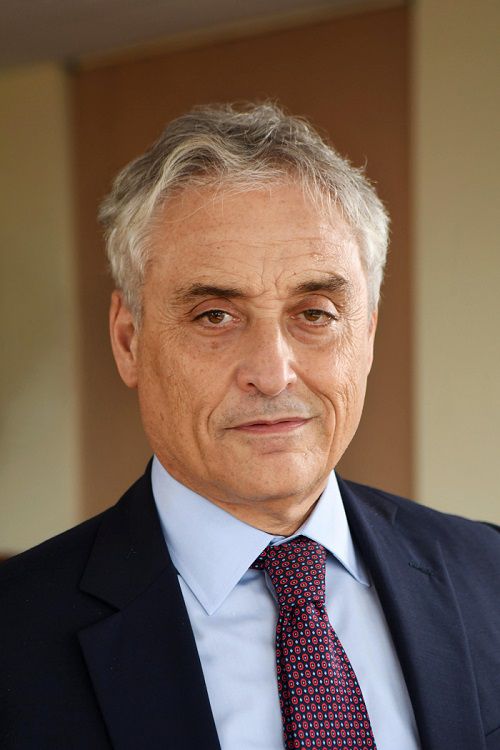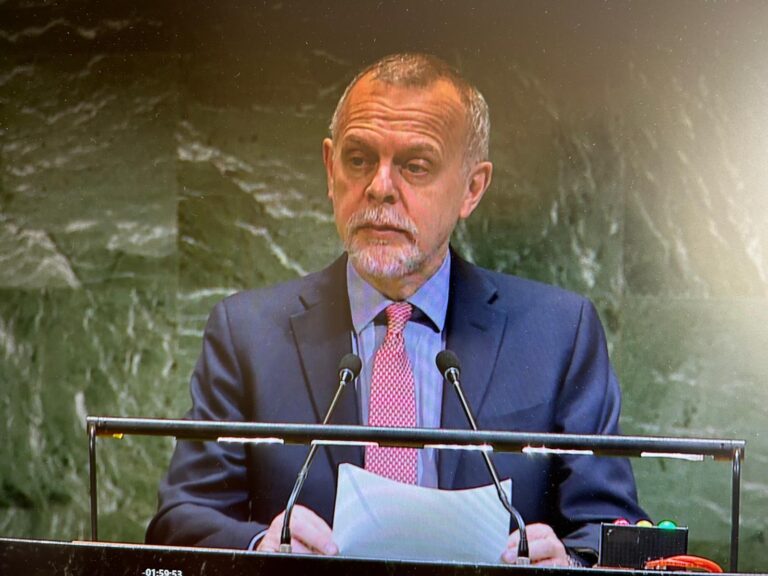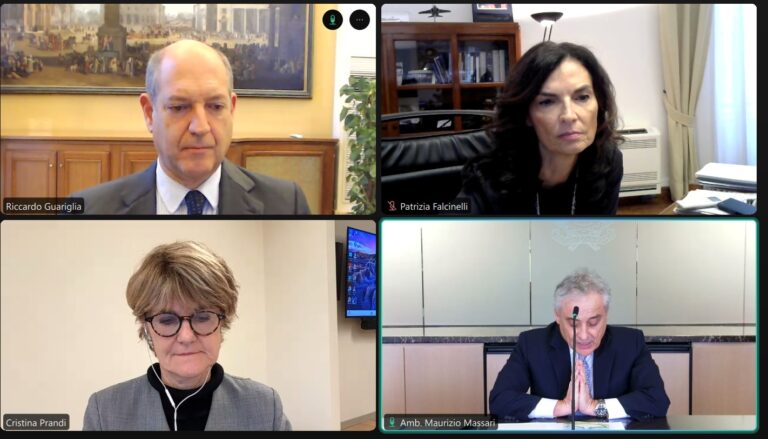Mr. President,
On behalf of Uniting for Consensus (UfC), a pro-reform, cross-regional and diversified group, I would like to express our gratitude for your leadership in convening this important debate. Thanks to the collective commitment to move the Security Council reform process forward, we are confident that significant progress can be made during the upcoming Intergovernmental Negotiations (IGN). UfC stands ready to support and collaborate with you in this endeavor.
We also wish to thank you for promptly reappointing two highly skilled, experienced, and capable Co-Chairs for the Intergovernmental Negotiations (IGN) process, H.E. Mr. Alexander Marschik, Permanent Representative of Austria, and H.E. Mr. Tareq M. A. M. Albanai, Permanent Representative of Kuwait. Their leadership during the previous IGN sessions was marked by fairness and balance. We look forward to working with them and all Member States and groups in a spirit of full transparency and with a shared commitment to progress.
UfC is eager to participate in this session, as we have always done, with a constructive mindset, building on the positive momentum generated in the last IGN.
A comprehensive reform of the Security Council is necessary to increase its legitimacy and efficiency in the eyes of both the wider membership of the General Assembly and the world’s citizens. It would enhance the Council’s authority and make it more fit to face and respond to new global challenges and realities. A reformed Council would consolidate the longstanding values of multilateralism and advance multilateral cooperation in a manner consistent with the principles enshrined in the United Nations Charter.
Mr. President,
The urgency of a comprehensive reform of the Security Council is not contested. However, it cannot be a reform at any cost and, in an increasingly divisive and polarized international context, we need a reform for all, not for a few. There cannot be shortcuts for such a reform and we need to continue to work steadily and in good faith to achieve the widest possible acceptance that results in a Charter amendment that meets the ratification threshold.
Our goal must be to achieve a reform that makes the UN Security Council truly representative, democratic, accountable, transparent, effective, and responsive to current and future challenges. We must prioritize enhancing the representation of underrepresented regions, and the UfC proposal effectively addresses these concerns. The General Assembly recently agreed on the parameters of the reform, and we urge that the process truly concentrates on these.
The IGN remains the sole appropriate and legitimate forum to negotiate the reform of the Security Council, which was reconfirmed along with the parameters, and we should recognize the progress made in the most recent sessions.
The five clusters of the reform need to be tackled in a thorough and focused manner, aiming to better understand the links and interconnections between them, garnering the necessary convergences on all of them. Skipping this phase would hinder real progress and risks paralyzing the reform completely. Significant differences remain on key aspects of the reform, such as regional representation, categories of membership or the question of the veto.
We look forward to examining further concrete proposals put forward by States and negotiating groups. We presented the UfC model last March and we encourage other Member States and groups to put forward or revise their models, to facilitate review, productive discussion and consensus building. The advantages of transparency and open discussion are highlighted by the fact that some of the proposals put forward by UfC (such as the rotating seat for SIDS) were recently taken on board by a broader grouping of Member States. This is proof of the forging of convergences within the IGN.
The UfC’s position on the various clusters of UNSC reform are well-established and widely known, so I won’t revisit them in detail today to keep these remarks brief. However, I would like to remind everyone that the UfC’s model has not remained static. Over the years, our Group has shown flexibility, adjusting our stance to accommodate the perspectives of other negotiating groups and according to contemporary challenges. We call on other groups and countries to exhibit similar flexibility and bring forward their own “compromise” proposals on the five clusters.
As per our proposal, we remain committed to the expansion of elected non-permanent seats in order to reflect the urgent need for a more equitable system of representation and rotation within the Council. At the same time, we propose longer-term, re-electable seats, with a flexibility to accommodate the positions of other negotiating groups and the unique dynamics of each regional group. The continued participation of a Member State in the Council would be based on their performance, ensuring that they are held accountable to the wider membership.
We firmly oppose the creation of new permanent members. Permanent membership is fundamentally undemocratic, as it lacks the necessary accountability to the broader UN membership. Without periodic elections, there is no way to hold countries accountable for their actions in the Security Council. The strength of the current “elected-ten” (E10) lies, among others, in being accountable to the membership, which fosters responsible and effective performance in accordance with the interests of the broader UN membership.
As we have consistently emphasized, the UfC’s proposal is not for the benefit of our individual members, as it rather serves the collective interest, through a reform of the Security Council that benefits all Member States and strengthens the UN as a whole. An enlarged Security Council with only elected members would enable more rotation between all Member States.
Under the UfC proposal, every Member State stands to gain; no one is excluded or left behind, and all countries will have greater and fairer access to the Council. This proposal is one that advances pragmatic solutions. UfC is a cross-regional group with members of both developed and developing countries. Any proposal for Security Council reform should be for the benefit of all, not just for a few. Our model addresses the legitimate interests of underrepresented regions and the “historic injustice” against African and other developing countries who, rightly so, demand that their voice be heard. We can no longer leave this call unanswered. At the same time, we cannot afford to further aggravate the shortcomings in the functioning of the current Council. Let us be honest: How could any enlarged Security Council with more permanent members and more vetoes ever effectively discharge its function?
Mr. President,
In conclusion, I want to emphasize that UfC is clear in recognizing that all Member States are equal in this forum. Therefore, a reform approach that benefits only a select few cannot be considered a solution for the entire membership. As we look ahead to this new session of the IGN, we reaffirm our willingness to engage in fruitful discussions to advance reforms towards an inclusive, representative, transparent, democratic and accountable UNSC that will enhance the Council’s relevance, effectiveness and ability to discharge its critical mandate.
UfC is committed to continue working collaboratively with you, Mr. President, the Co-Chairs of the IGN, and all Member States to move this process forward in a meaningful and productive way.
I thank you.













